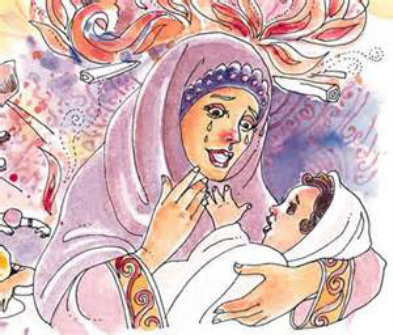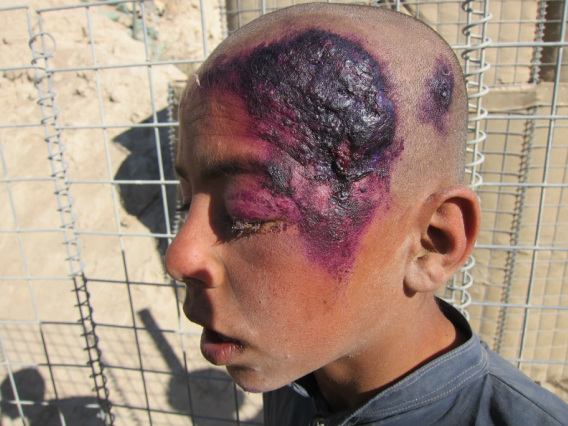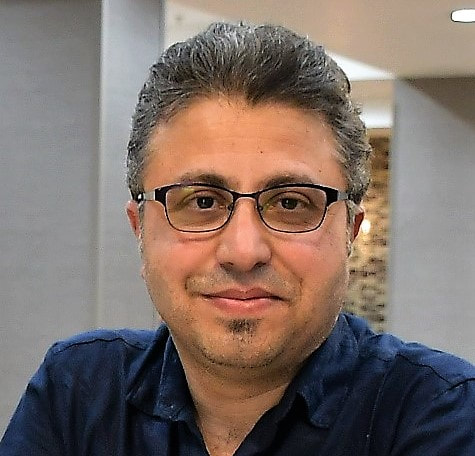http://www.thefridaytimes.com/tft/taliban-are-here-to-stay/
- Howe do you see the security situation in today’s Afghanistan?
Security situation is as bad as it has been at any point since the international forces took over in 2002. There is an uneasy calm in areas with weak militant presence and acts of violence are committed on a daily basis in the capital Kabul and in southern parts of the country where Taliban are strong. Taliban have retained the capacity to strike at will despite the presence of international forces for the past 12 years. The recent complex attack on a very secure area of Kabul is indicative of Taliban’s resilience. Their command and control structures are intact and their supreme leader Mullah Omar is still at large. The Taliban insurgency is more of a franchise rather than a large organization with a central command. The international forces are following a policy of population-centric COIN (Counter Insurgency) in which they are concentrating on large population centers leaving behind the majority of rural population at the mercy of militants. Consequently, this policy has largely been unsuccessful in creating any lasting security except in the security bubbles around NATO bases. Interestingly, 2013 saw a 50% increase in poppy cultivation which is largely responsible for funding the Taliban insurgency. The heroin factories are working normally and members of the drug-network can move freely across the region without any disruption and reprisal. 2014 is the make or break year for Afghanistan and national, regional and international players need to find a lasting solution.
- The main fear among the Afghan people is that the country could revert to another civil war once NATO withdraws its combat troops. What do you think?
There is a real chance that the country mighty lead to civil war, as it has happened in the past as well especially after the withdrawal of Soviet troops in 1989. A lot of people feeling this real sense that somehow the country will plunge into another civil war. Any miscalculation on part of the Afghan leaders will have dire consequences. NATO and international forces will have to eventually withdraw from Afghanistan, if it didn’t happen this year, it might happen in the next couple of years. Afghanistan cannot remain on the mercy of international forces forever. Ultimately, Afghan leaders will be held responsible in case of either a relatively peaceful environment or a chaotic situation post-2014. International community has spent billions of dollars on capacity building of the Afghan forces especially ANA (Afghan National Army). The results have been mixed so far. There is very high attrition rate among the Afghan soldiers and a large number of them use drugs. I had observed their training at many locations in Afghanistan and most of them did not take their training seriously. In case of a civil war, their break up along ethnic lines is a strong possibility. Only this time, the results would be disastrous as they are armed with the latest weapons and ammunition and they are better trained. There is a strong need for the Afghans to take greater responsibility for securing their own homeland.
- What is the future of Taliban in Afghanistan?
are examples around the globe where extremists have been pacified such as Sri Lanka and Ireland; Afghanistan is not one of them. Taliban are here to stay for a long time to come. Though Taliban don’t necessarily follow the trans-national Jihadi ideology of Al-Qaeda, nonetheless they want Sharia-based laws for their country. Taliban draw their financial and philosophical strength from Wahabi ideology. As long as Saudi-Iran rivalry plagues the south Asian region, Taliban will be funded and supported. There is no dearth of recruits for Taliban; there is a very high unemployment rate in Afghanistan and Taliban empower ordinary citizens with an AK-47 and enough money to support their families. The innumerable madrassas on the Pakistani side of the Durand Line are churning Taliban recruits at an unimaginable rate. The perpetual turmoil since 1973 has produced at least two generations of illiterate Afghans who can be easily persuaded to join the so-called Jihad against the western infidels. The international community needs to leave the Afghans alone and help broker a regional solution so that proxy wars are not fought on the Afghan soil. As long as Afghanistan stays unstable and does not invest heavily in modern education, Taliban will remain relevant in the foreseeable future.
- With regard to the new government in Islamabad, what is your opinion that Pakistan has changed its approach to insurgency in Afghanistan?
Pakistan’s Afghan policy is largely controlled from Rawalpindi and not Islamabad. So far we have seen a continuation of the old policy adopted in early 80s. Pakistani establishment somehow believes that a friendly government in Kabul is their best chance to quell Pashtun nationalism. The systematic Talibanization of Pakistan has bogged down the establishment at home and is not allowing it to meddle in the internal affairs of Afghanistan and India and other regional countries. As a result, pursuing the goal of a soft government in Kabul is not a top priority as it has been in the past. However, the policy of picking and choosing terrorist groups is strongly pursued. Haqqanis are the current favorites and they remain state guests in Islamabad. The current policy is to wait and see who is Karzai’s successor. Islamabad is holding its card close to the chest but would certainly like to remain relevant in any future Afghan set-up. Unlike his previous two terms, Nawaz Sharif appears frail and has lost touch with reality. A weak civilian government will pave the way for GHQ to call the shots and dictate their will on Kabul. Pakistan and Afghanistan are conjoined problems and without stabilizing the former, the later will always be in turmoil.
- Who will lead Afghanistan after Karazi? How do you see upcoming Afghan presidential election?
Though the Afghan national elections are only two months away but there are real concerns about the viability of the electoral process. The security situation could worsen in a matter of days as the future of Bilateral Security Agreement (BSA) is uncertain. Karzai has toughened his stance on signing BSA and NATO now believes that he won’t sign it. If NATO decides to go for zero-option, it will play well for the terrorists. In the complete absence of international forces, Taliban can have a field day with those participating in the election process. We have seen extremely low turnouts in the past and another low turnout this time around could mean less credible results. The credibility of Afghan government has eroded over time and the political process is in danger of being taken over by chaos and violence.
It appears like the top candidates are Ashraf Ghani backed largely by Pashtuns and Abdullah Abdullah supported by Tajiks and other northern communities. Ashraf Ghani’s decision to pick Rashid Dostum as number 2 is not playing well with Pashtuns. If Taliban allow the Pashtuns in the south to go to polls, there are good chances that Mr. Ghani will be the next Afghan President.
- Can natural resources play an important role in the future of Afghanistan?
Afghanistan is sitting on mineral resources worth 3 Trillion US dollars. I have discussed the current state of Afghan natural resources in my book “Afghanistan: From Cold War to Gold War”. These resources range from metallic and non-metallic to energy resources and most importantly huge deposits of Rare Earth Elements (REEs) which are in great demand for high tech industries. Currently, China is the sole provider of REEs and would like to maintain its monopoly. China is already in the lead for bidding on some of the mineral resources, followed by India. Currently, China is in the forefront to mine these resources and they have signed various contracts with the Afghanistan government. If properly explored, exploited and managed, this could possibly transform Afghanistan into a wealthy nation!




 RSS Feed
RSS Feed
